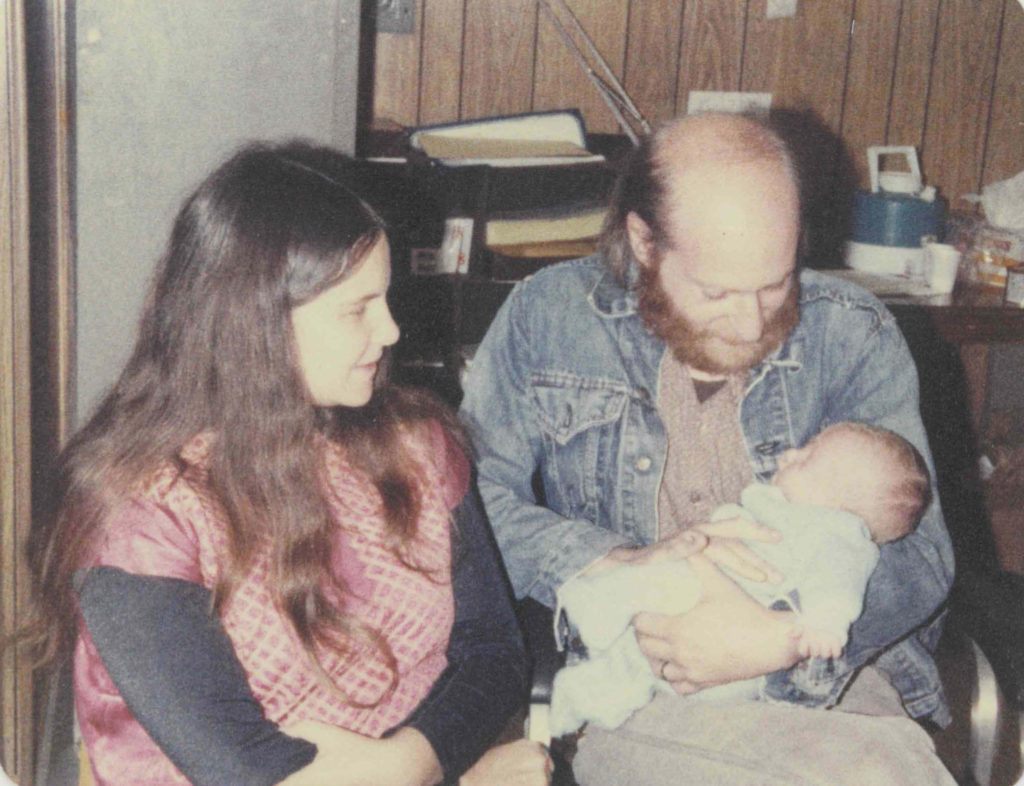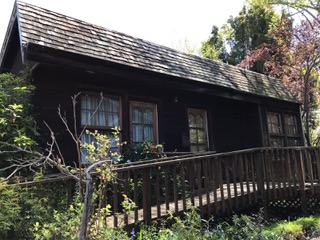Our Founder’s Story
By Megan Kirshbaum, Ph.D. Founder and Executive Director

My experience as a family therapist for young adults with disabilities and their families in Berkeley’s Center for Independent Living from 1974 to 1982 led to a commitment to earlier preventive intervention for families. After our second child was born with medical issues, my experience with early intervention made it clear that the field could benefit from an independent living and peer perspective, as well as from expertise about how to facilitate infant/parent relationships and attachment.
In 1980 I started providing Infant Mental Health services to parents and their infants with disabilities as a “peer clinician,” with consultation from Dr. Alicia Lieberman. In 1982, with the support of my husband, Doctor Hal Kirshbaum, I founded Through the Looking Glass (TLG). The goal was to:
- Bring a disability culture perspective to early preventive intervention with families with disability/medical issues in an infant/child or parent.
- To bring more awareness about families and parenthood to the independent living disability community.
Hal and I initially housed Through the Looking Glass in a converted garage in the backyard of our Berkeley home—two small rooms joined by a bathroom.

The pioneering San Francisco Infant-Parent Program initially trained our staff; and its director, Dr. Jeree Pawl, provided on-going consultation in the early years.
At first we were involved with the national work that was being done to create more respectful and strength-based services for children with disabilities and their families. Through time it became clear that, while there were many groups advocating for improved practice for children with disabilities, there was a lack of focus on the multiple barriers facing parents with disabilities and their children in the U.S.
From the beginning we emphasized a “non-pathological” perspective in both clinical services and research. We were one of the first “Infant Mental Health” programs in the U.S., combining that clinical specialty with family therapy and developmental intervention. TLG expanded on this foundational work by bringing a strength-based focus, as well as practical disability resources, to the support of families with disabilities—including parents with diverse disabilities.
Rather than emphasizing deficits in children or parents with disabilities and their families, we emphasized lessening the deficits in society that create obstacles in the lives of our families. TLG’s research has therefore particularly documented the strengths of parents with disabilities and their families, the environmental/social obstacles faced, and the impact of providing appropriate services. During the early years of TLG’s services, parents with disabilities reported many problems with bias and pathologizing by professionals. We also discovered that attitudinal problems were often reflected in research and writing about parents with disabilities and their children. We became interested in doing family research from the perspective of the disability community.
When we identified pathological preconceptions, we examined and challenged them. For instance, the mistaken, generalized assumption that children of parents with disabilities are “parentified” (required to take on parental and caregiving responsibilities) has been addressed in a series of research projects focused on infancy, school-age children, teenagers, and young adult children of parents with disabilities.
During research and services, we gathered the solutions of experienced and mentor parents with disabilities and channeled their knowledge to new parents, newly disabled parents, and families who were particularly stressed. For instance, we videotaped the inventiveness of parents with physical disabilities during babycare, and then channeled that parental expertise into our occupational therapists designing and providing babycare adaptations. We developed the first national parent to parent peer network for parents with disabilities, using phone and mail prior to the availability of social media.
Since the 1980’s we’ve been involved with the custody issues of parents with diverse disabilities. We provided training, technical assistance, and information that led to the passage of state legislation focusing on improving the lives of parents with disabilities in Idaho, Kansas, and California. Our research and custody roles culminated in our contracted role in advocating for, guiding, and writing of a significant part of the National Council on Disability’s groundbreaking Rocking the Cradle: Ensuring the Rights of Parents with Disabilities and their Children, a 2012 report to President Obama that led to congressional hearings, legislation, and more national attention on these issues (read Rocking the Cradle: Ensuring the Rights of Parents PDF).
TLG has a particular commitment to training professionals from diverse fields who impact the lives of parents with disabilities. Over the years—through our national centers for parents with disabilities and their families—we’ve trained more than 225,000 professionals from all U.S. states and 55 countries. We’ve also provided on-going and intensive internships for numerous psychology doctoral and post-doctoral trainees, occupational therapy fieldwork students and doctoral residents, and early childhood special education student teachers. Many of our students and trainees have personal or family disability experience.
All of this work is part of an effort to increase and support more appropriate resources for parents with disabilities and their children, since public policy and services lag far behind our families’ prevalence.
Looking back to when we emerged in 1982 from Berkeley’s Independent Living Movement (the disability civil rights movement), I’m astounded at how many obstacles we have overcome. We continue to be a David competing with so many Goliaths! And in our thirty-ninth year of operations we continue to be a crucial support for almost 2000 low-income children and parents annually in Alameda and Contra Costa Counties, while also acting as a catalyst for national and international innovation.